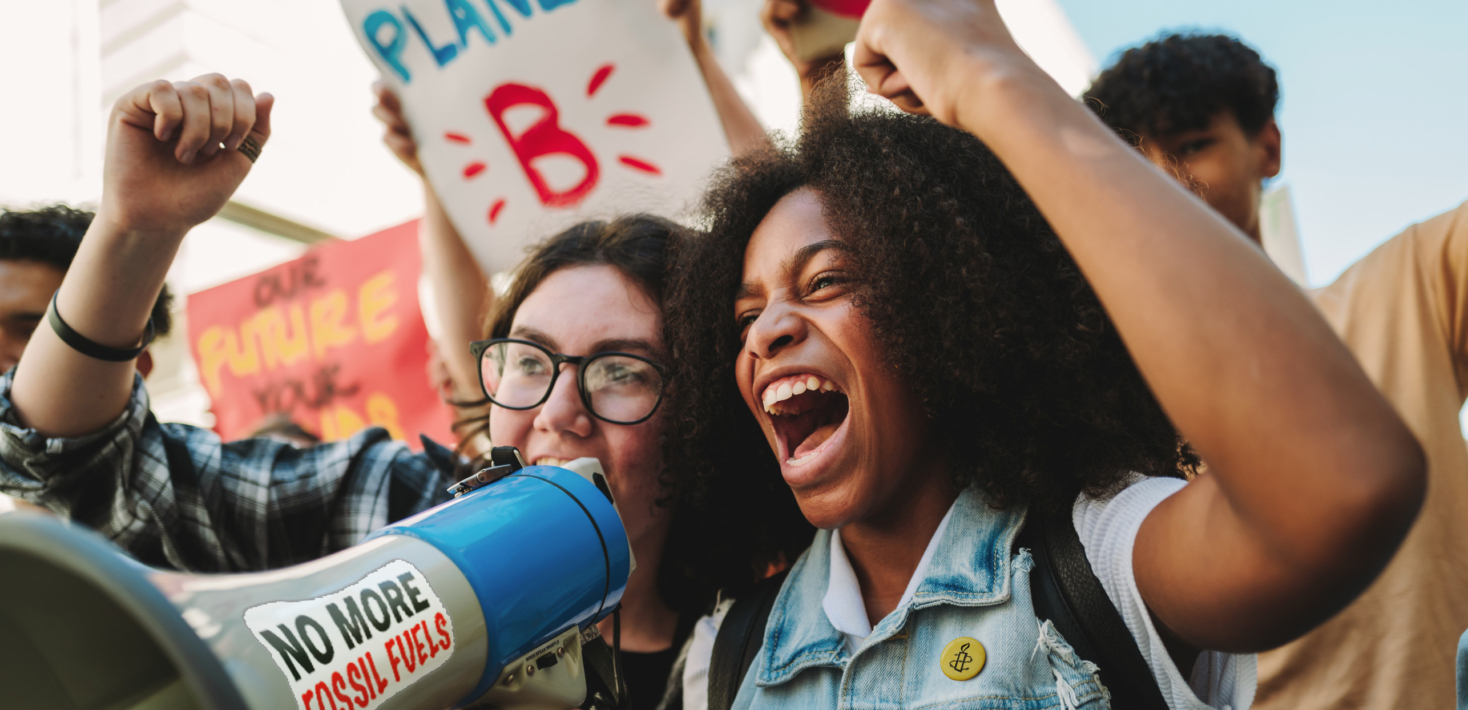A new UN report setting out strategies to better protect child and young human rights defenders is a major step forward for activists across the world, said Amnesty International ahead of the launch of the document.
The UNSpecial Rapporteur on the situation of human rights defenders, Mary Lawlor, will present her new report “We are not just the future”: challenges faced by child and youth human rights defenders” , to the 55th Session of the Human Rights Council on 12 March 2024.
Child and youth activists, some of whom will be supported by Amnesty International, will also be attending the session to share their first-hand experiences.
“Child and young human rights defenders often face oppression, including intimidation, threats and attacks – both offline and online – as well as age-based discrimination, stigmatization, belittling and dismissive remarks, and exclusion,” said Sara Vida Coumans, Amnesty International’s Deputy Director for Campaigns and Education and Head of the Global Children and Youth Team. “Looking at the realities faced by human rights defenders, from a young person’s perspective, is long overdue as it recognizes that experiences differ across generations.”
In her report, the Special Rapporteur highlights significant barriers faced by child and youth defenders, including “gatekeeping by adult-led groups controlling access to resources and opportunities”, which leads to unequal power dynamics and sets limits to the participation of child and youth defenders in decision-making processes.
For example, the report states that access to “legal aid and advice is crucial for the protection of human rights defenders and for an enabling environment in which they can carry out their work” and that child and youth defenders do not have the same access and face barriers to cover legal fees, as they are less likely to receive funding from donors.
“We urge governments around the world to follow the recommendations made by the Special Rapporteur and start providing legal aid and support for child and youth human rights defenders affected by legal challenges or who need advice to exercise their rights,” said Sara Vida Coumans.
Amnesty International has been documenting abuses faced by children and youth human rights defenders for many years, including social media’s impact on privacy and mental health, the right to peaceful assembly and the impact of climate change on young people. This report marks the first time a UN Special Rapporteur has focused on the specific experiences faced by child and young human rights defenders.
Among the cases Amnesty has documented are Fatima Movlamli from Azerbaijan, an outspoken defender whose private photos and videos have twice been shared online in an attempt to intimidate starting when she was a teenager, and Mahmoud Hussein from Egypt who has already spent two years in arbitrary pretrial detention for wearing an anti-torture T-shirt when he was 18.
In Ecuador, only two weeks ago, child climate defender Leonela Moncayo, 14, was intimidated when an explosive device was detonated just outside her home. This happened five days after Leonela was stigmatized alongside other eight girl defenders by the Minister of Energy and Mines in the National Assembly due to their activism against routine gas flaring.
The UN report also states that “since 2020, students at university and secondary school have peacefully protested for democratic reform. Some protestors in Thailand call themselves the ‘Bad Students’ in acknowledgement of the abuse and retaliation that they face from teachers.” Amnesty International documented how the Thai authorities have failed to respect and protect child human rights defenders when it comes to youth-led protests, while officials have used child protection powers to detain young human rights defenders, preventing them from exercising their rights to freedom of expression and peaceful assembly.


